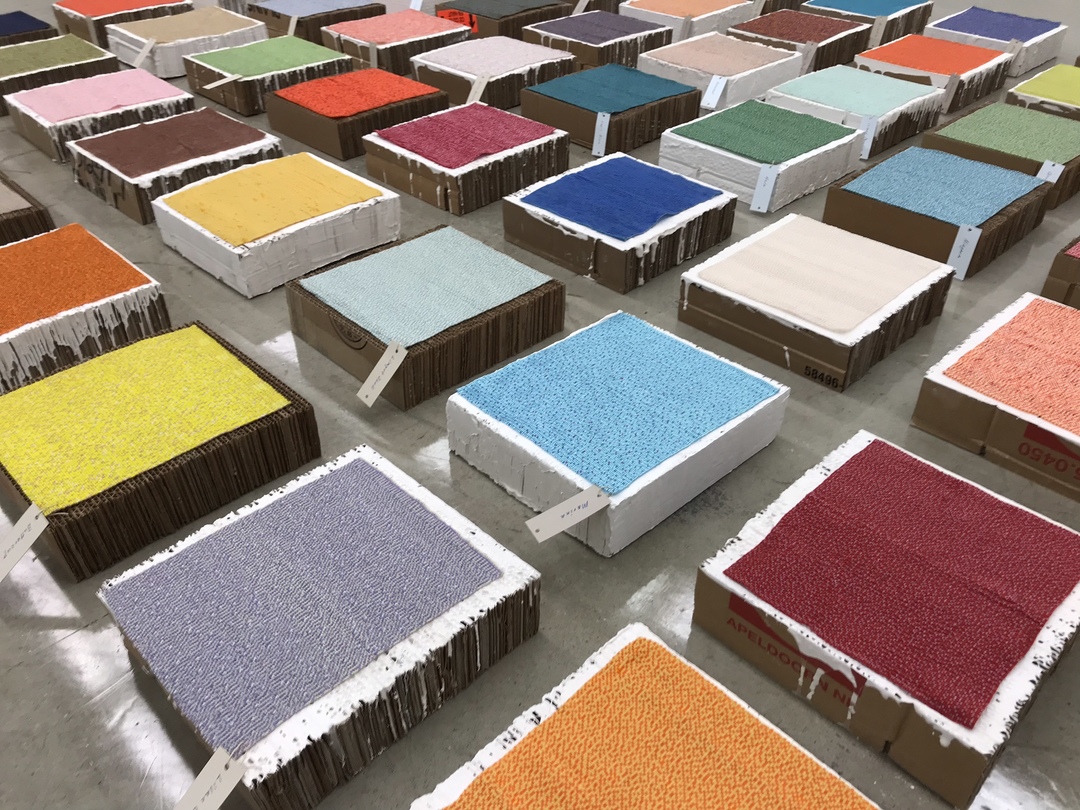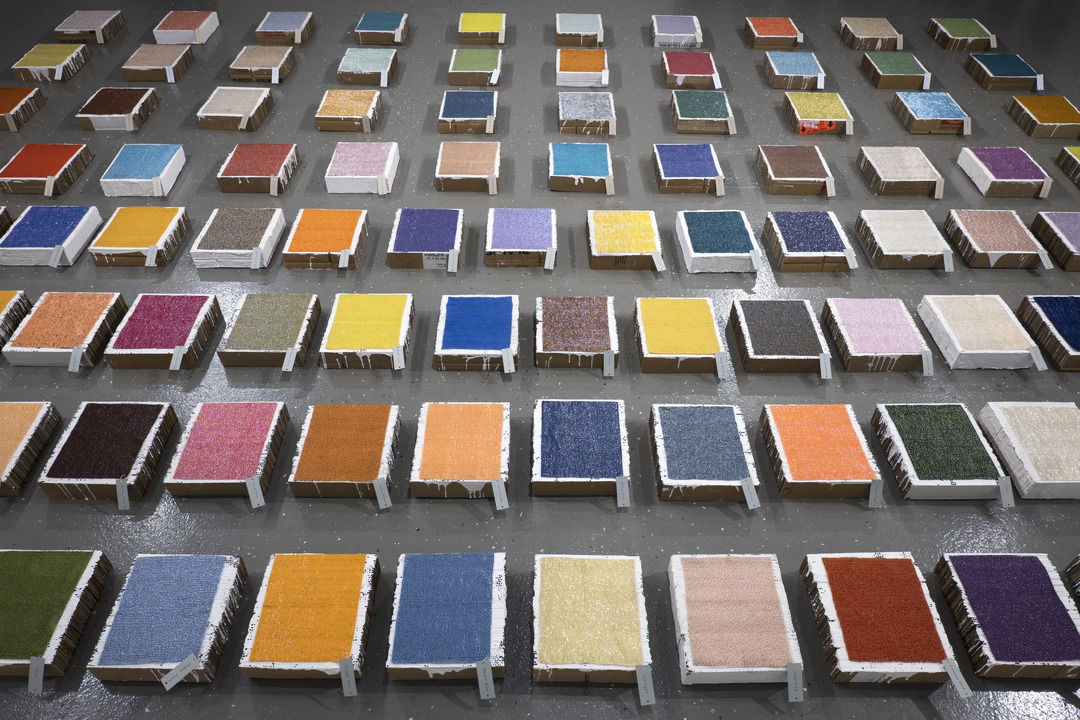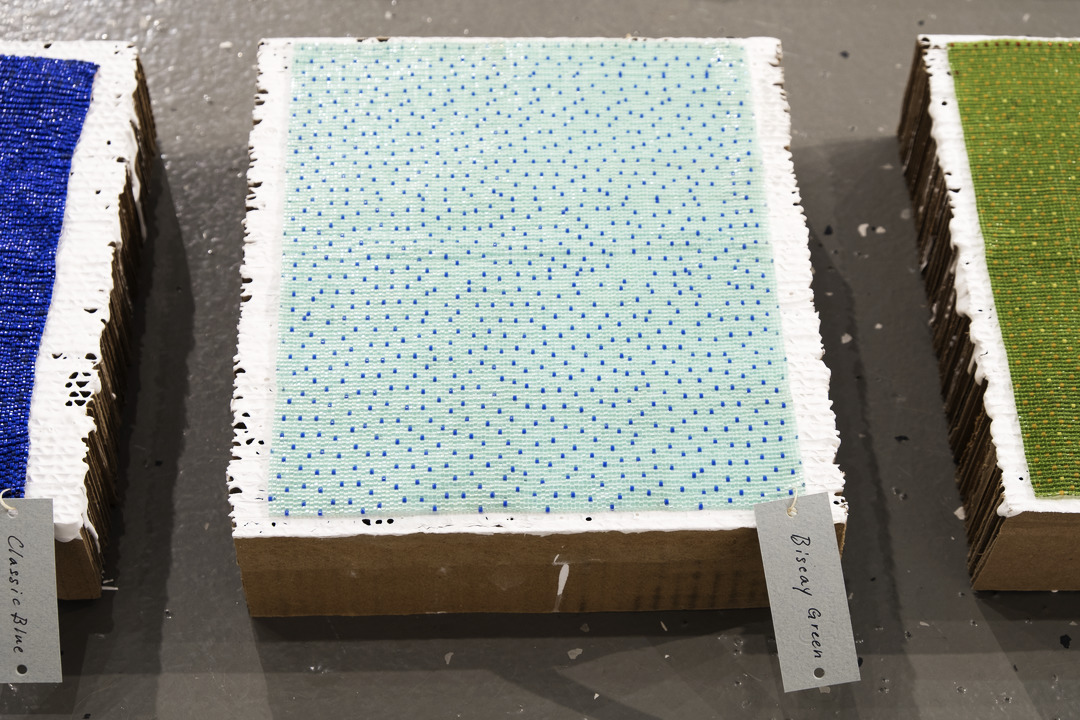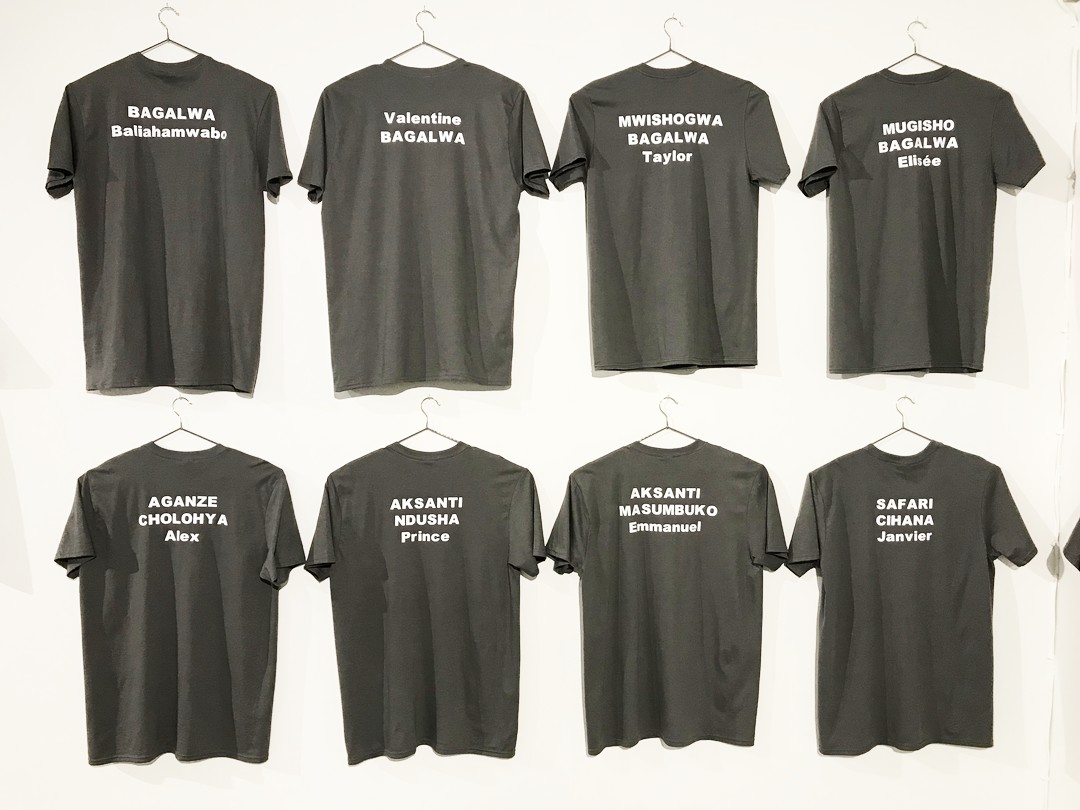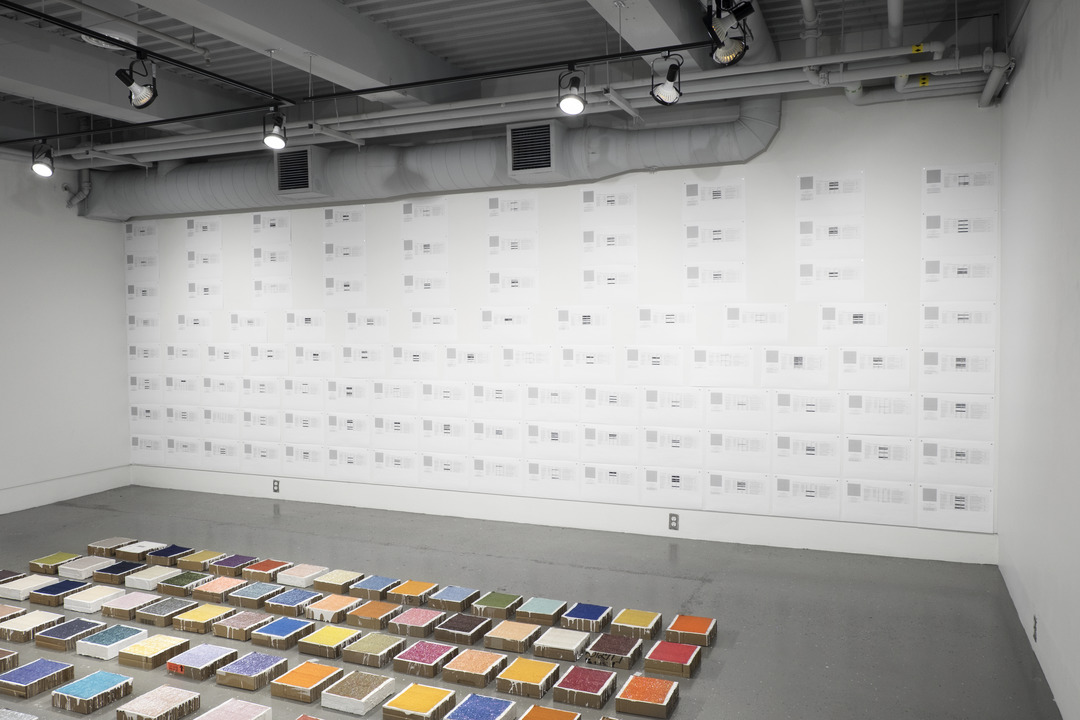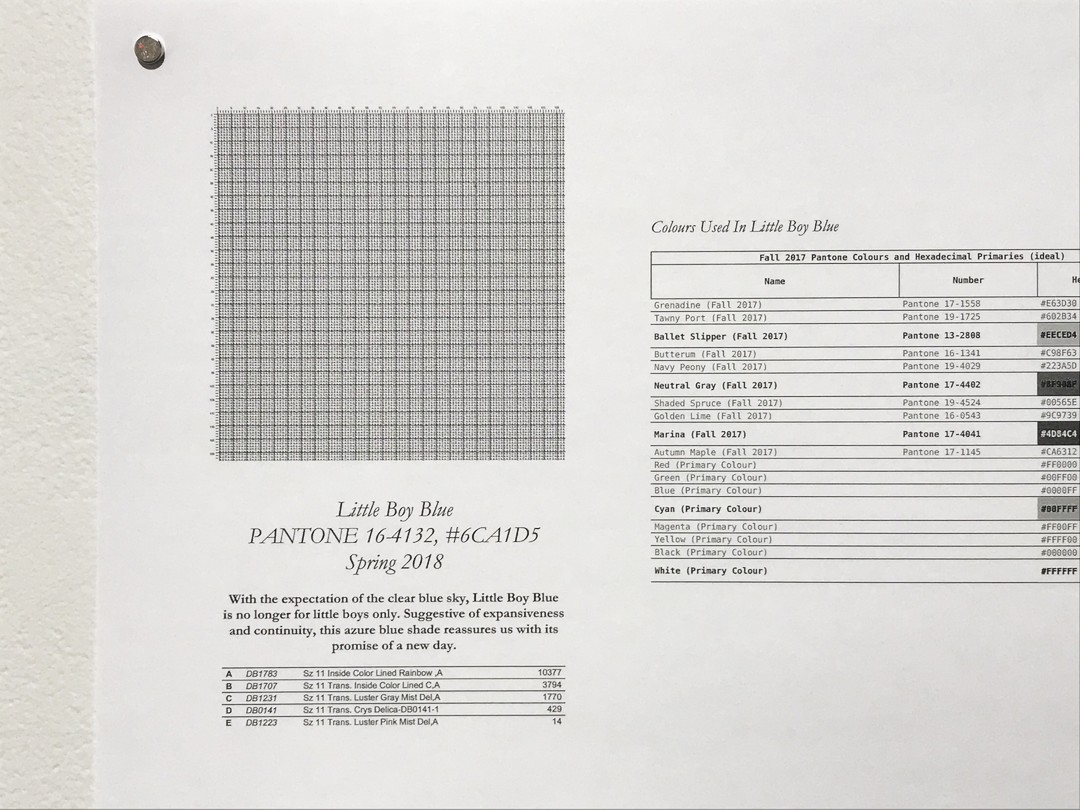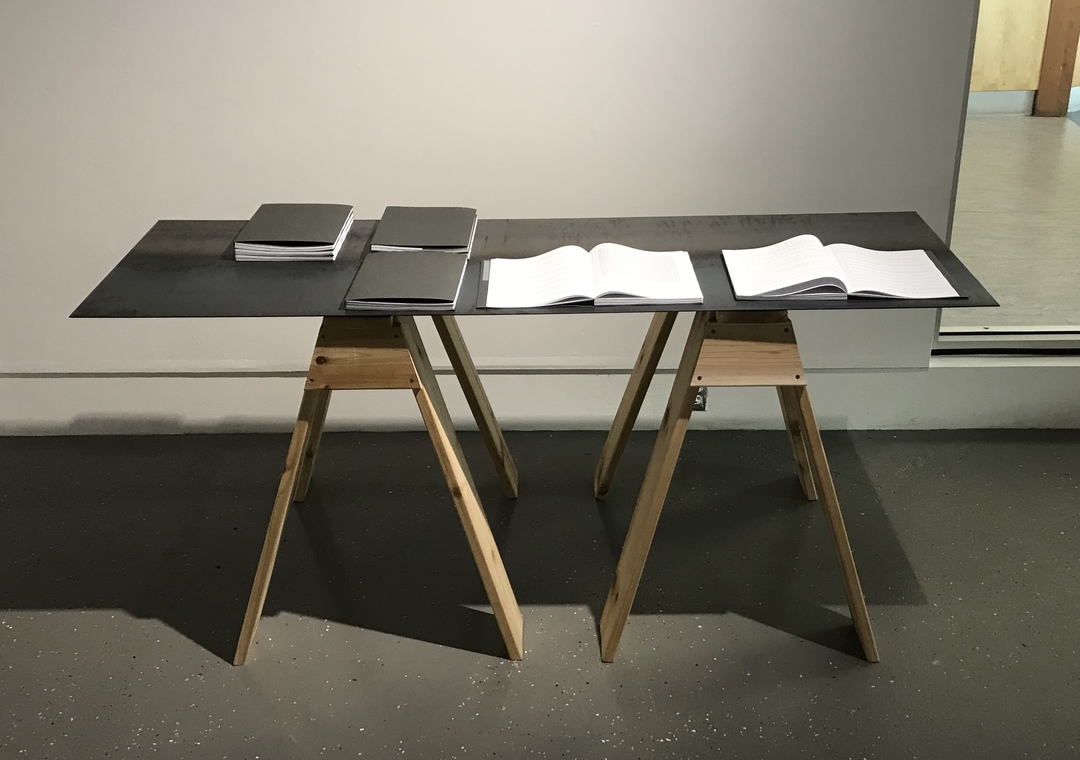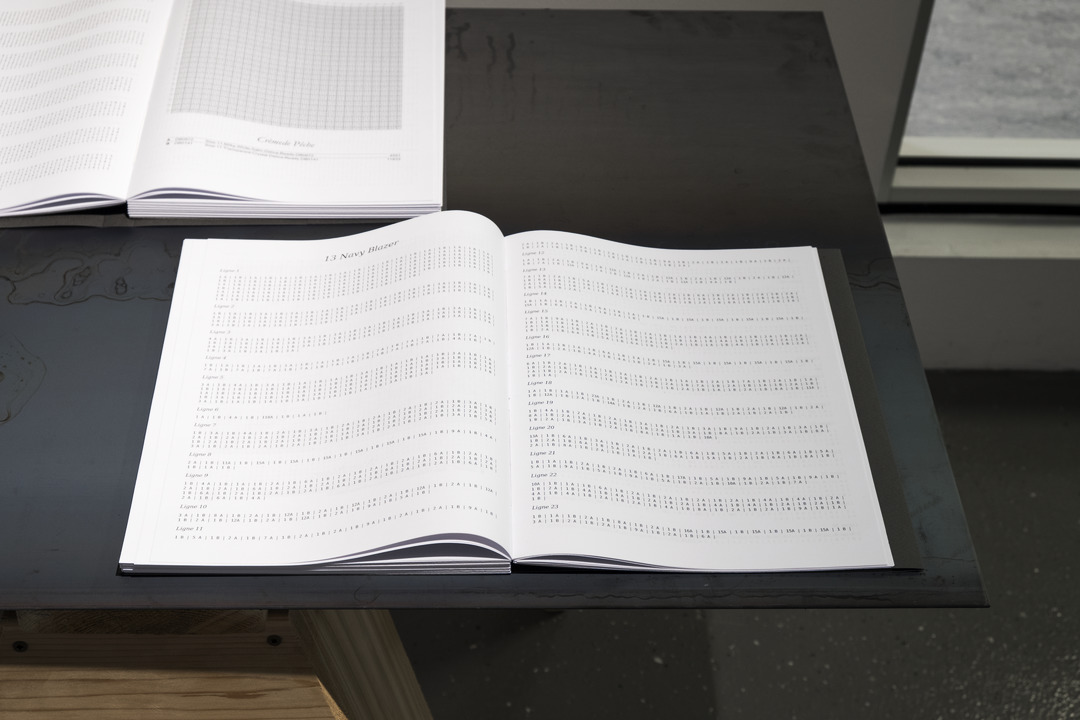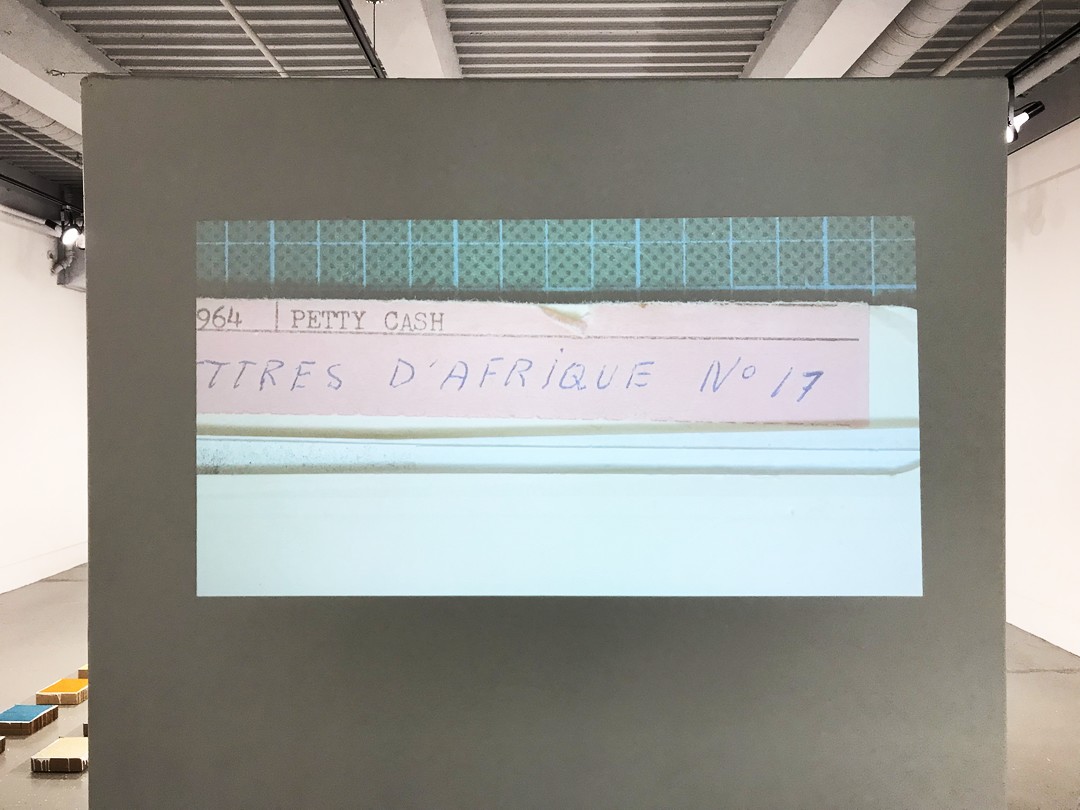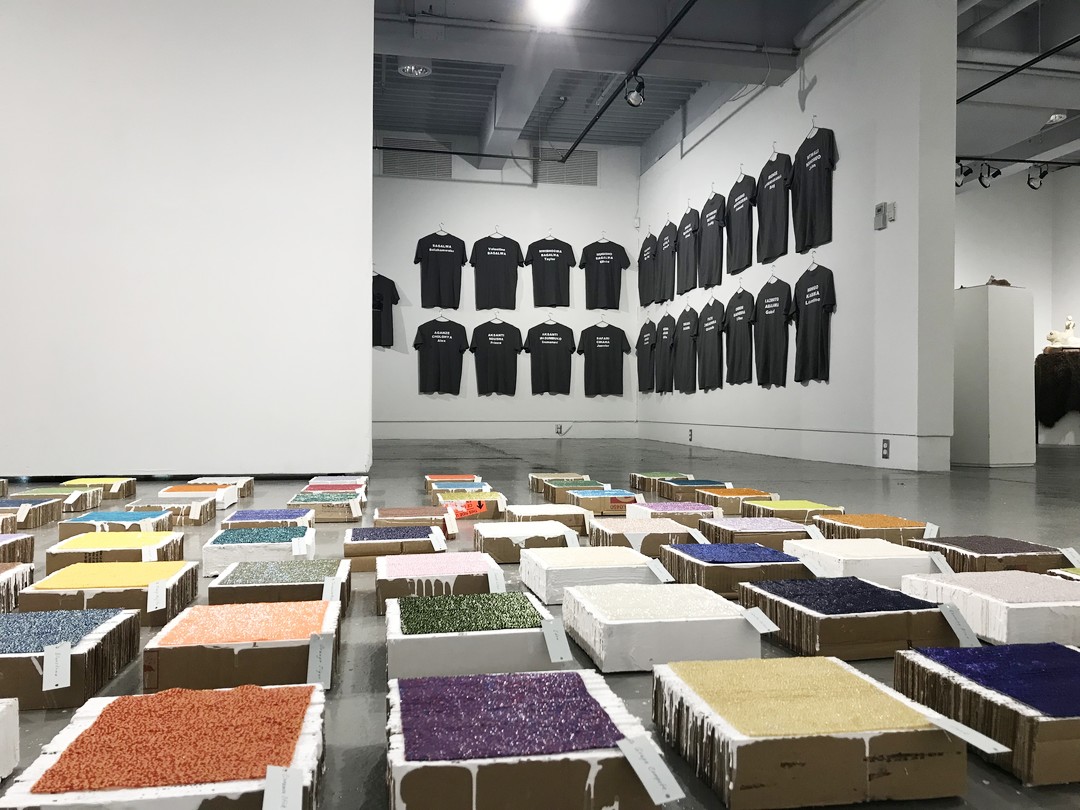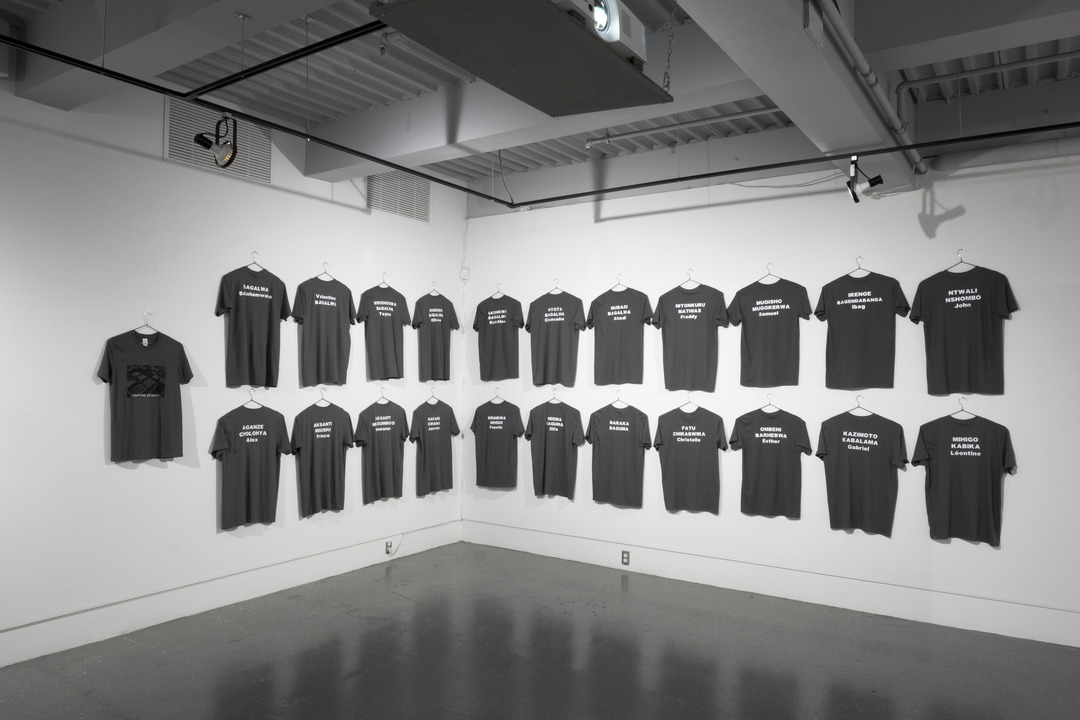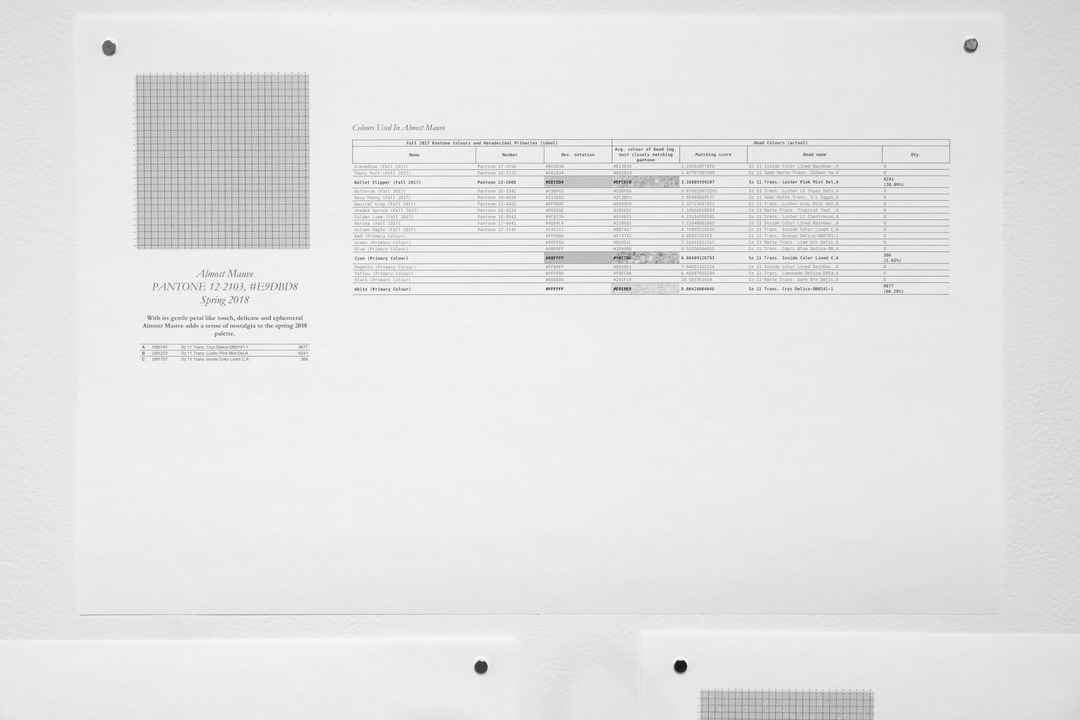Teinture de Bukavu
(2015-present)A grid of over 100 luminous and brilliantly coloured swatches, composed of tightly-woven seed beads, forms the centrepiece of this exhibition. The beaded swatches, based on colours from the Pantone Fashion Color Report since 2015, are then outsourced to Bagalwa Baliahamwabo, a longtime family acquaintance, and his ad hoc team of artisans in Bukavu, Democratic Republic of Congo.
This ongoing work is a comically tragic re-staging of the antagonisms inherent in production and consumption under globalization. Immaterial labour in the form of commodities’ intellectual and cultural content is contrasted with something that sits uneasily between the romanticized craftsmanship of the indigenous artisan and the cheap manual labour of the foreign factory worker. Capital and commodities flow effortlessly between nations that in so many other ways remain literally worlds apart. I strive to give a fresh visibility to these conditions, recognizing my contribution as a single node in an ecosystem of more and less entitled, provocative, and idealistic voices.
Beadwork evokes a history of trade that continues to this day. From the 14th to the 18th centuries, Venetian glass beads were produced en masse specifically for trade with the colonies of the so-called “New World” and Africa. There, they underwent a process of commodity indigenization as they were incorporated into dress, custom, and ritual, and eventually sold back to European tourists as exotic souvenirs. Today, Canada is connected to Africa by flows of gold, copper, diamonds, and tungsten: ghosts that occasionally emerge from the well-buffered background of normalcy to haunt modern citizens. Well-intentioned but simplistic responses often have more to do with westerners’ needs for confirmation of their own innocence, the externalization of evil, and easy, satisfying solutions than with a risky and potentially painful openness to the other.
Mr. Bagalwa was a long-time correspondant with my father. He persisted in writing letters to me and my family even after my father’s passing. His remarkable agency and my eventual response have developed into a relationship that implicitly acknowledges aspects of colonial history, imperialism, and a foreign policy whose purpose is the advancement of national economic interests. However, our relationship also models an approach to altruism rooted in mutual reciprocity—giving and receiving—in contrast to heroic forms of self-sacrifice.
Teinture de Bukavu
Woven seed beads, cardboard, glue, plaster, gesso
2020 Alternator Centre for Contemporary Art, Kelowna, BC
Teinture de Bukavu
Woven seed beads, cardboard, glue, plaster, gesso
2020 Alternator Centre for Contemporary Art, Kelowna, BC
Teinture de Bukavu - Biscay Green (Spring 2020)
Woven seed beads, cardboard, glue, plaster, gesso
2020 Alternator Centre for Contemporary Art, Kelowna, BC
Teinture de Bukavu - T-Shirts
T-Shirts with custom vinyl lettering
2020 Alternator Centre for Contemporary Art, Kelowna, BC
Teinture de Bukavu - Summaries
Swatch data: target colour name, description; source colours, translation information.
2020 Alternator Centre for Contemporary Art, Kelowna, BC
Teinture de Bukavu - Summaries
Swatch data: target colour name, description; source colours, translation information.
2020 Alternator Centre for Contemporary Art, Kelowna, BC
Teinture de Bukavu - Summaries
Swatch data: target colour name, description; source colours, translation information.
2020 Alternator Centre for Contemporary Art, Kelowna, BC
Teinture de Bukavu - Instructions
Instructions for the weaving of swatches bound in hand-made books, one per season.
Books: photocopies, thread, PVA, Canson; Table: hot-rolled steel, cedar
2020 Alternator Centre for Contemporary Art, Kelowna, BC
Teinture de Bukavu - Instructions
Instructions for the weaving of swatches bound in hand-made books, one per season.
Books: photocopies, thread, PVA, Canson; Table: hot-rolled steel, cedar
2020 Alternator Centre for Contemporary Art, Kelowna, BC
Teinture de Bukavu - D'Afrique
Slideshow (video): 160 images of file folders fading into one another at a rate of about 12 seconds per image (31:37 running time)
2020 Alternator Centre for Contemporary Art, Kelowna, BC
Teinture de Bukavu
Woven seed beads, cardboard, glue, plaster, gesso
2020 Alternator Centre for Contemporary Art, Kelowna, BC
Teinture de Bukavu - T-Shirts
T-Shirts with custom vinyl lettering
2020 Alternator Centre for Contemporary Art, Kelowna, BC
Teinture de Bukavu - Summaries
Swatch data: target colour name, description; source colours, translation information.
2020 Alternator Centre for Contemporary Art, Kelowna, BC
